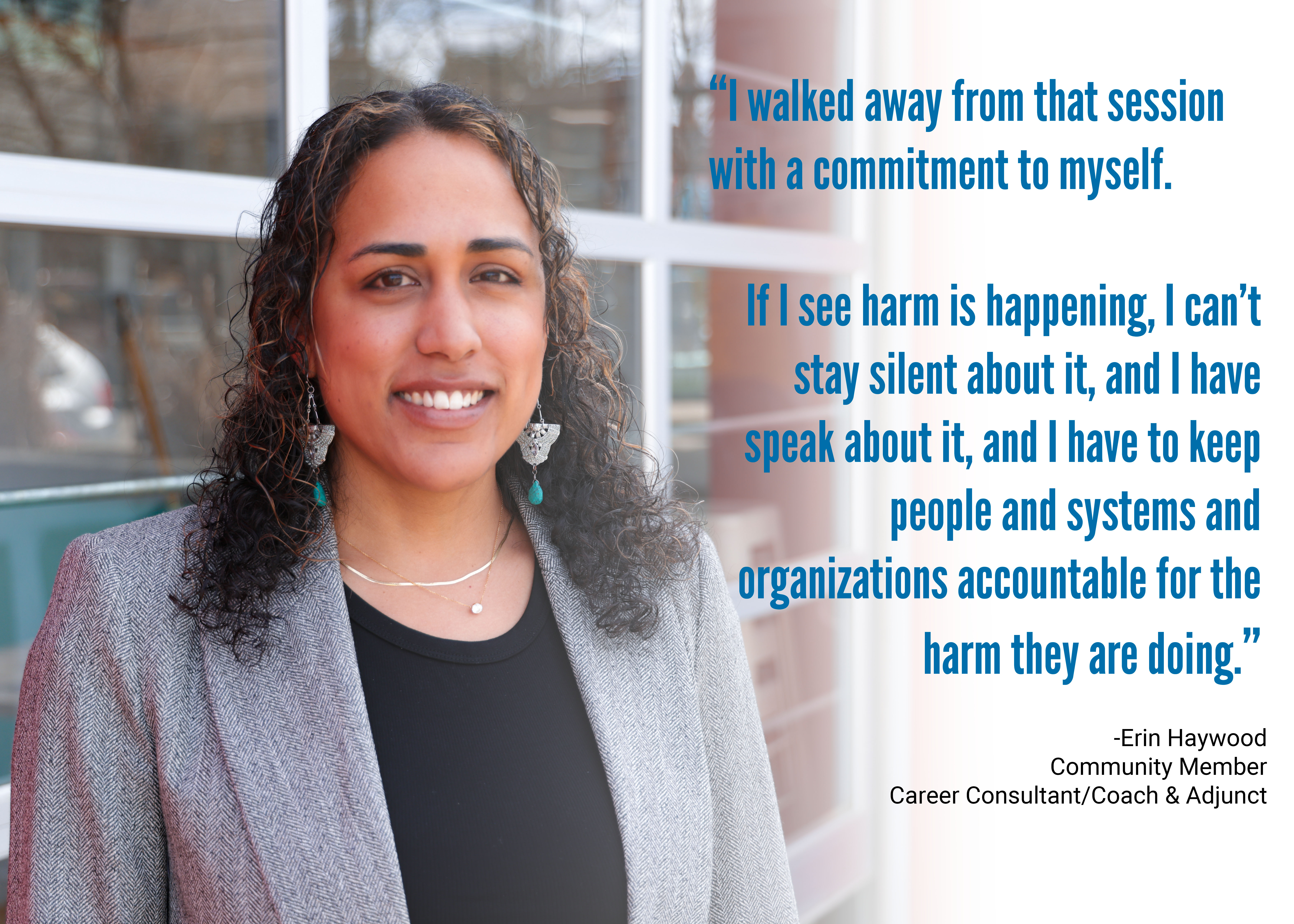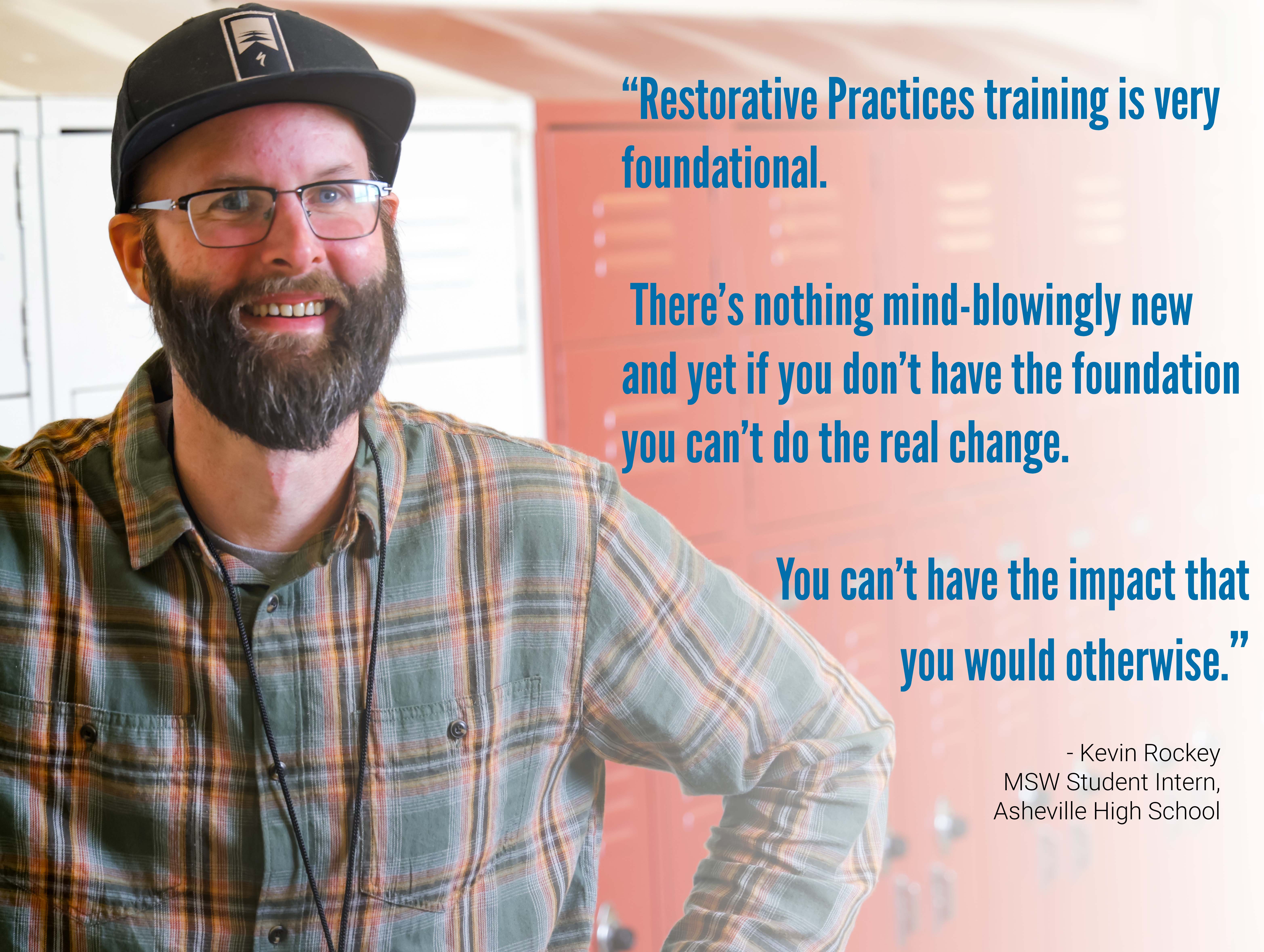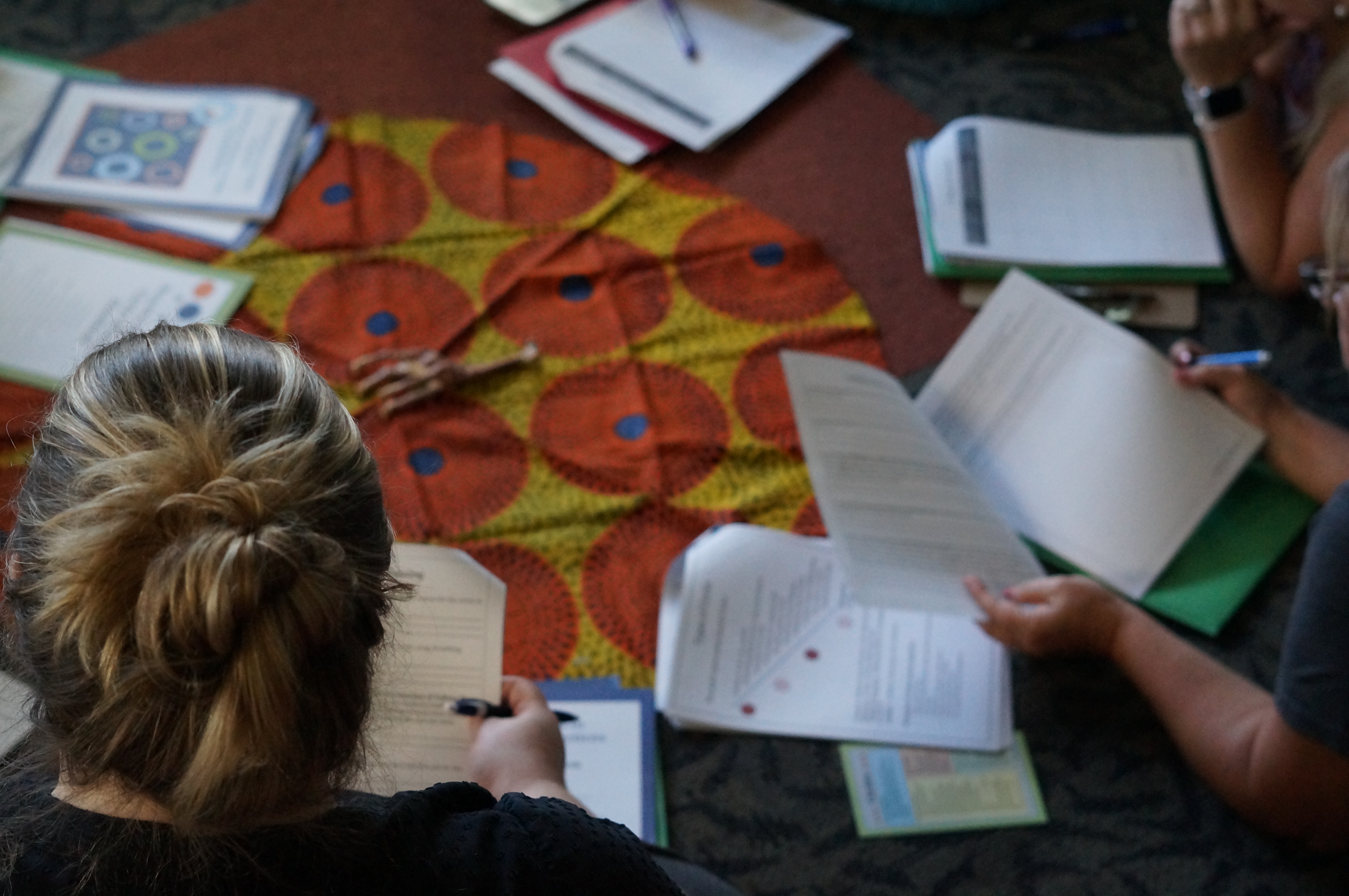Erin Haywood is a community member with a vested interest in Restorative Practices, she has worked with youth as well as coaching adults. “Being trained as a school counselor and seeing how powerful restorative practices can be for youth. I knew I wanted to continue to equip myself with those tools and techniques”, said Haywood as she discussed why she signed up for the free two-day training.
Erin chatted with us about all the aspects she enjoyed about the training and frequently noted how the group was encouraged to hold space for each other's humanity. And with that, Haywood spoke on how she has seen when the community holds space for humanity and how this also opens the door for the harder and critical aspects of Restorative Practices. “As a community, if we are willing to get critical about what are the real circumstances, challenges, and barriers,” said Haywood, “I think on the other side of it we can get to some concrete solutions.”
Although he comes from a vastly different background than Haywood, Kevin Rockey, currently studying for his Master's in Social work at Western North Carolina University, also came to some similar conclusions during and after the training. “It’s easy to stay in our own bubble”, said Rockey, “and avoid the discomfort of creating connections or, from a social work perspective confronting injustices or inequity in all the ways it appears. But it is how we make that change we want.”
The issues of injustice, communal healing, and inequity can be daunting challenges, but Rockey notes, “Restorative Practice is very foundational, there’s nothing mind-blowingly new, and yet if you don’t have the foundation, you can’t do the real change. You can’t have the impact that you would otherwise.”
Restorative Practice is scalable to big and small issues because it is the foundation of connection. Both Erin Haywood and Kevin Rockey left the training with how they themselves can scale Restorative Practices in their work or personal life.
“I walked away from that session with a commitment to myself. If I see harm is happening, I can’t stay silent about it, and I have speak about it, and I have to keep people and systems and organizations accountable for the harm they are doing”, said Haywood.
Rockey chose to look at how Restorative Practices intertwine with his studies as a Social worker by saying, “Social work is social justice… and it’s hard to visualize all of the interactions we have as people without a restorative practices foundation. To do the work is critical. ”




